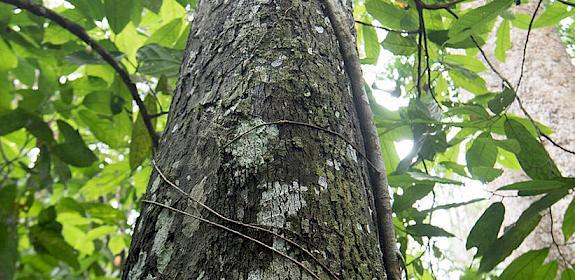Focus on transboundary conservation in China
Xishuangbanna, Yunnan Province, China, 31st March 2015—An international meeting on transboundary conservation took place earlier this month in Xishuangbanna Dai Ethic group Autonomous Prefecture in Yunnan province. Xishuangbanna is on China’s southern borders with Myanmar, Lao PDR and Viet Nam and is home to tropical rainforest where wild Asian Elephants roam.

The Workshop of conservation on the borders: an evaluation of the role and future of transboundary protected areas in Southern China held by the China Academy of Science Xishuangbanna Tropical Botanic Garden (XTBG) brought together delegates from a number of environmental institutes, national and international universities and conservation NGOs, including TRAFFIC.
TRAFFIC Programme Officer Li Chenyang spoke about TRAFFIC’s efforts in curbing illegal trade in wildlife and promoting sustainable use of medicinal plants. Lively discussion ensued on the use of innovative approaches to strengthening enforcement efforts and the adoption of the FairWild Standard to facilitate sustainable wild plant harvesting practices. Participants agreed that alternative livelihoods for local communities in conservation areas was important, as was enhanced benefit sharing, sustainable ecological services and addressing human-wildlife conflicts.
Other topics covered during the meeting included regional biodiversity, ecosystem services, endangered and vulnerable species, land utilization and local people’s livelihoods in protected areas.
Poaching and illegal wildlife trade were highlighted as key elements undermining conservation efforts in border areas. Attention was drawn to Mong La, on the Myanmar border near Xishuangbanna, as a critical hotspot for illegal trading and smuggling of wildlife.
His Royal Highness Prince William addressed the closing ceremony of the meeting where he spoke with passion about the negative impacts of poaching and illegal wildlife trade.
The meeting concluded with the issuing of the “Xishuangbanna Declaration on protecting biodiversity and eliminating illegal wildlife trade along the China-Myanmar-Laos-Viet Nam transboundary region”
The Declaration recognizes the need for strengthened enforcement; networking between multiple institutions; utilization of new technology and knowledge; better education; and transboundary government collaboration in combatting illegal wildlife trade.
 This communication has been produced with the financial assistance of the European Union. The contents of this communication are the sole responsibility of TRAFFIC and can under no circumstances be regarded as reflecting the position of the European Union.
This communication has been produced with the financial assistance of the European Union. The contents of this communication are the sole responsibility of TRAFFIC and can under no circumstances be regarded as reflecting the position of the European Union.




